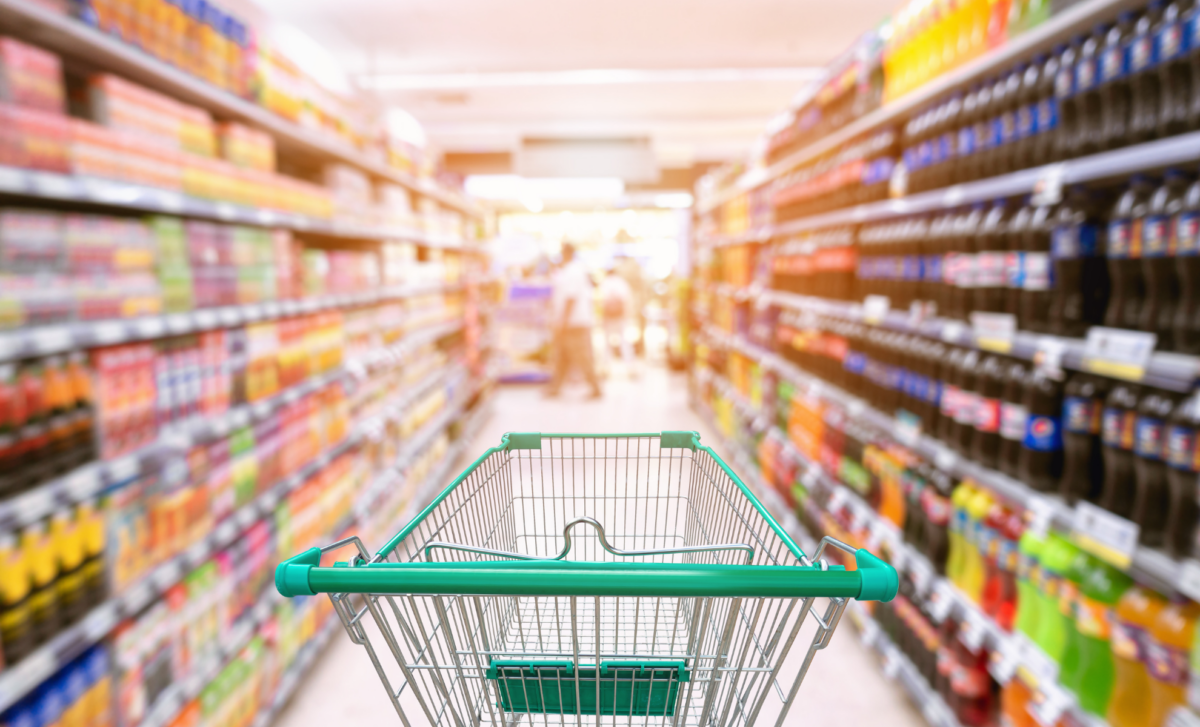UK food price inflation reached its lowest rate in two years due to declining energy costs and intensified competition among supermarkets, providing relief for households amidst stretched budgets.
Moderate Food Price Inflation Offers Relief for UK Consumers
In February, the British Retail Consortium (BRC) shop price index revealed a noteworthy development in the cost of essential food items, with meat, fish, and fruit experiencing a decline in prices. Despite this downward trend, overall food prices still rose by 5% compared to the same period last year. However, this increase represents a notable decrease from January's inflation rate of 6.1%, marking the lowest level observed since May 2022.
This moderation in the rate of price growth comes as a welcome relief for consumers who have been grappling with persistent double-digit increases in food prices over the past two years. These surges were largely driven by escalating energy prices, which fuelled rampant inflation across various sectors.
The recent data indicates a slight dip in food prices by 0.1% in February compared to the previous month, marking the first monthly decrease since September of the preceding year. This reversal in the upward trajectory of prices suggests a potential easing of inflationary pressures in the food market, albeit modestly.
Helen Dickinson, the chief executive of the BRC, said: “This was driven by easing input costs for energy and fertiliser while retailers competed fiercely to keep prices down.”
The recent significant drop in the wholesale price of gas has had a direct impact on household energy bills, prompting the industry regulator Ofgem to announce a 12% reduction in its price cap. This adjustment translates to a substantial decrease of £238, bringing the cap down to £1,690 starting from April. Concurrently, there are emerging indications that major supermarket chains are intensifying their efforts to compete more aggressively on pricing.
Retailers Navigate Cost of Living Crisis: Balancing Profit Margins and Consumer Needs
Amidst the ongoing cost of living crisis, retailers are facing the challenge of balancing their profit margins while also meeting the needs of consumers grappling with rising household bills and tighter shopping budgets. Last week, Morrisons initiated a campaign aimed at informing customers that it offers comparable or even lower prices than discounters such as Aldi and Lidl, echoing similar marketing strategies adopted by Tesco, Asda, and Sainsbury’s.
In terms of overall retail dynamics, the inflation rate for shop prices moderated to 2.5% in February, down from 2.9% recorded in January. Although non-food prices experienced a surge, rising by 1.3% compared to a year earlier and 0.7% from January, the overall trend suggests a slight easing of price pressures in the retail sector.
Richard Walker, the executive chair of frozen food chain Iceland, noted a relaxation in the cost pressures within its supply chain, leading to the implementation of price cuts on various products. This strategic move, encompassing items such as pizzas, beef burgers, and ready meals, has resulted in robust sales performance for the company.
“Cost pressures throughout manufacturing are coming down and this is starting to come through,” Walker said. “We are passing on the biggest falls faster than wholesale prices are coming down for us to get ahead of the game. For our customers, offering great value is more important than ever.”
According to the BRC data, prices for furniture, electrical goods, and health and beauty products saw an increase, while clothing prices experienced a decline as retailers employed promotional strategies to attract shoppers.
Dickinson noted that the moderation in inflation is a positive development for consumers. However, she cautioned that the recent surge in shipping costs, attributed to disruptions in the Red Sea, might exert upward pressure on non-food item prices. In light of these challenges, she reiterated the call for government assistance in addressing retailers' business rates bills, particularly ahead of the upcoming budget next month.
Data from the CBI indicates that retail sales declined modestly in the year leading up to February, following a significant drop in the previous month. The CBI's quarterly survey further forecasts that the rate of sales decline will pick up speed in the upcoming month.




